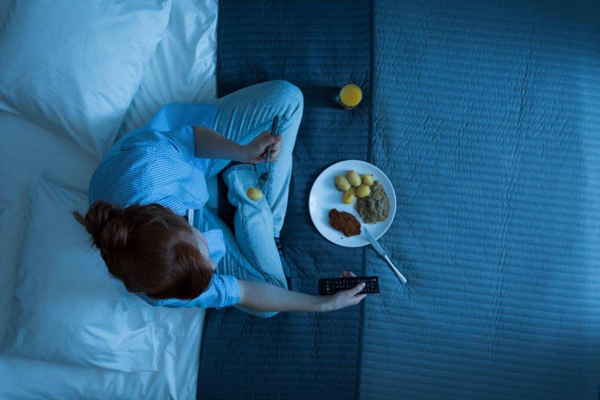
Triple Berry Frozen Smoothies
June 27, 2018
12 Tips for Better Fitness and Health
July 30, 2018It’s 10 p.m., you’re catching up on email, and it suddenly hits you: a Goliath-sized craving for chocolate-chunk ice cream. Findings in the International Journal of Obesity show why the evening hours pose such a high risk for overeating and unhealthy munching. For the study, researchers from Johns Hopkins University School of Medicine recruited 32 adults with excess weight who volunteered for two experimental protocols:
- a 608-calorie liquid meal at 9 a.m., a stress test 2 hours later and, finally, a free-for-all buffet 30 minutes after the stress test
- the same sequence, but starting at 4 p.m. and ending after 6:30 p.m.
Both groups began the protocol after an 8-hour fast. Blood tests were used to measure stress and hunger hormones, but participants also rated their subjective levels of fullness.Researchers discovered that the time of day significantly influenced hunger levels, with stronger perceived appetite in the evening than in the morning. Eating the test meal later in the day also reduced blood levels of peptide YY, a hormone linked to smaller appetite. Additionally, the findings suggested that stress may increase hunger hormones more in the evening than earlier in the day and that hormonal influence on appetite appears to be greater for people prone to binge eating.Thus, clients who are vulnerable to late-night fridge raids should be counseled on strategies such as taking evening walks to reduce stress; consuming more calories earlier in the day; eating high-protein, fiber-rich foods at dinner to quell hunger; and limiting exposure to television food ads that stoke cravings.


